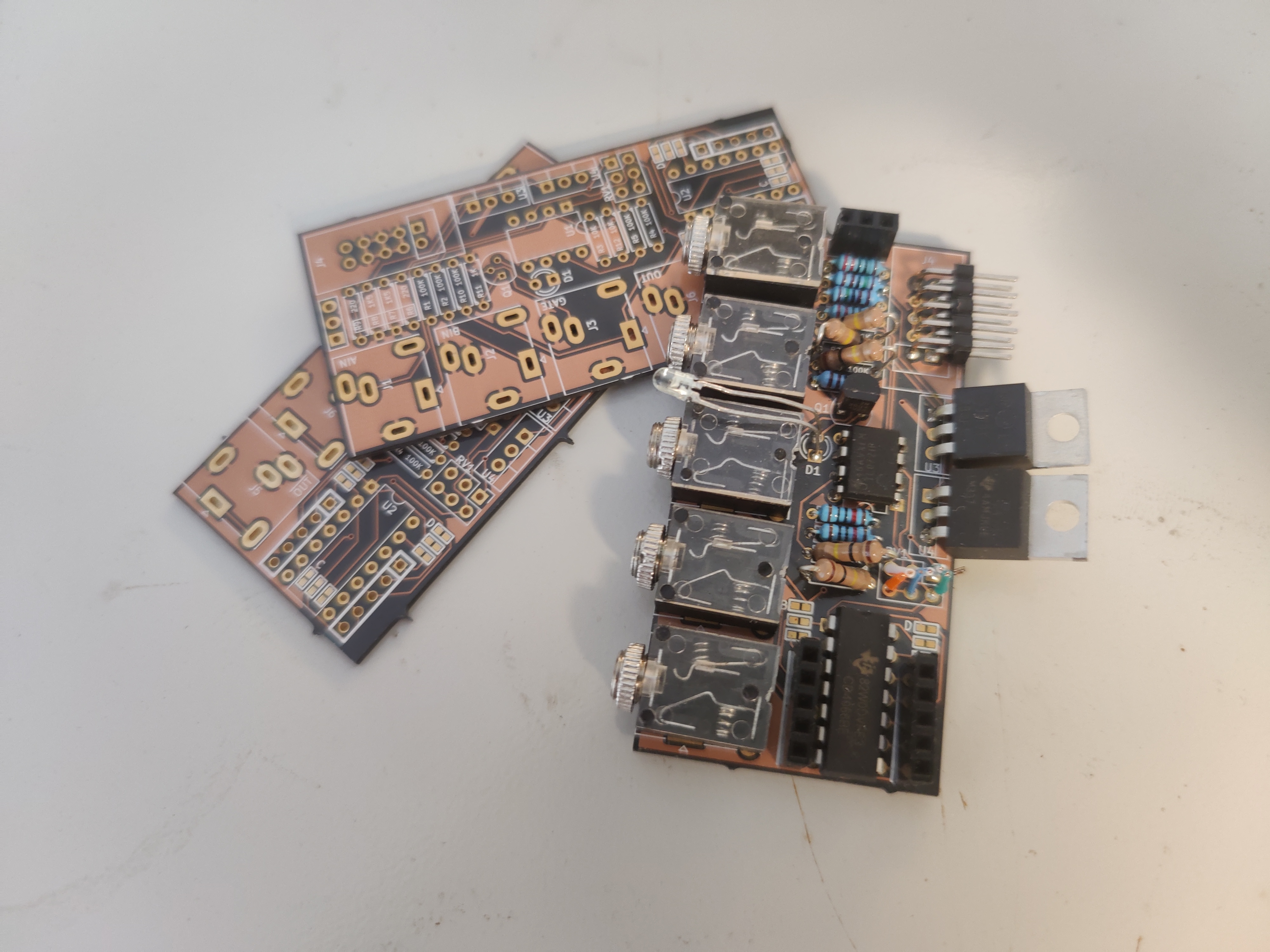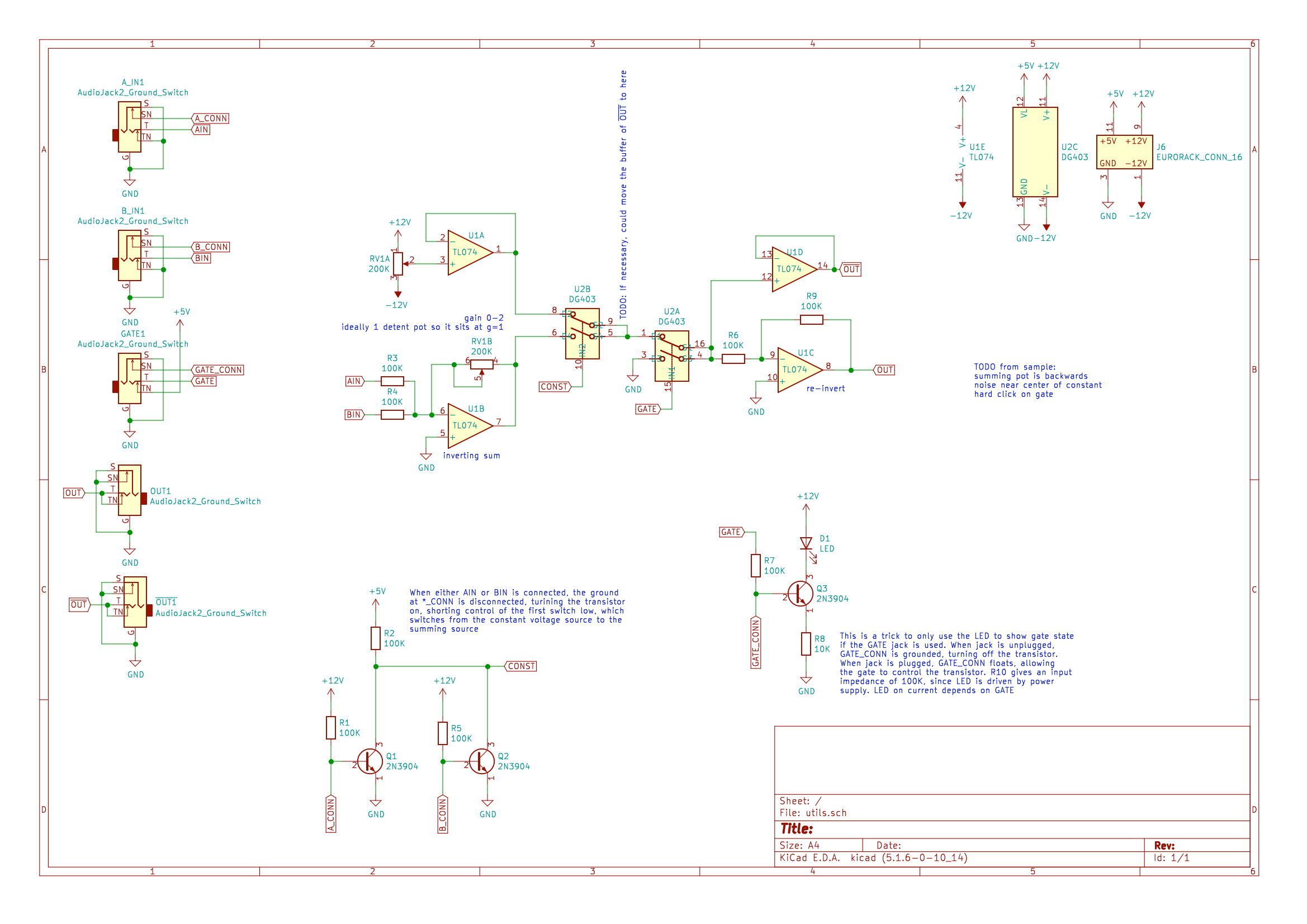Synthesizer - Clock module
This is a Eurorack synth module which combines a collection of common tools for transforming signals, either control voltages or audio signals. While there are several distinct utilities, most are not mutually-exclusive.
This was the first module I designed.

TODO
- Correct some noise
- Design a Revision-B PCB
- Assemble PCB
- Cut and decal panel
Usage
Source
When A_IN is disconnected, OUT is a constant voltage output based on the position of the knob. OUT is 0V when the knob is in the center position, and adjusts up to +/- 10V.
Buffer / Scaler
When A_IN is supplied, it’s value is buffered to OUT. The knob position linearly adjusts the output gain. At the center position, OUT is the same as A_IN. At the full-left position, OUT is off. At the full-right position, the value of A_IN is doubled.
Adder
When B_IN is supplied, it’s value is added to A_IN before applying scaling.
Inverter
~OUT is always the inverse of OUT.
Gate
When GATE is supplied with a digital voltage, it allows disabling OUT (and ~OUT) at logic-low (0V). An LED indicates when the gate is open. When GATE is not supplied, the outputs are always enabled, and the LED remains off.
Digital logic
Digital OR can be implemented by summing signals on A_IN and B_IN With the knob at the 1/4 position. Digital AND can be implemented by applying one signal to A_IN and one to GATE with the knob at the 1/2 position.
Design
A summing inverting amplifier with a variable feedback resistor handles the adder, inverter, and scalar. A connection on either A or B toggles an analog switch selecting between a constant voltage source and the summing output. Another analog switch controlled by the gate allows that signal to be toggled before it is buffered in both an inverted and re-inverted back to positive outputs.

This manages to use an extreme minimum number of parts, requiring only one quad op-amp and one dual analog switch. Some switching and transistor trickery is used to configure the behavior depending on what patches are connected.